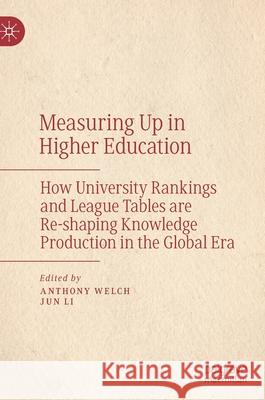Measuring Up in Higher Education: How University Rankings and League Tables Are Re-Shaping Knowledge Production in the Global Era » książka
topmenu
Measuring Up in Higher Education: How University Rankings and League Tables Are Re-Shaping Knowledge Production in the Global Era
ISBN-13: 9789811579202 / Angielski / Twarda / 2021 / 391 str.
Measuring Up in Higher Education: How University Rankings and League Tables Are Re-Shaping Knowledge Production in the Global Era
ISBN-13: 9789811579202 / Angielski / Twarda / 2021 / 391 str.
cena 645,58
(netto: 614,84 VAT: 5%)
Najniższa cena z 30 dni: 616,85
(netto: 614,84 VAT: 5%)
Najniższa cena z 30 dni: 616,85
Termin realizacji zamówienia:
ok. 22 dni roboczych.
ok. 22 dni roboczych.
Darmowa dostawa!
Kategorie:
Kategorie BISAC:
Wydawca:
Palgrave MacMillan
Język:
Angielski
ISBN-13:
9789811579202
Rok wydania:
2021
Wydanie:
2021
Ilość stron:
391
Waga:
0.63 kg
Wymiary:
21.01 x 14.81 x 2.39
Oprawa:
Twarda
Wolumenów:
01
Dodatkowe informacje:
Wydanie ilustrowane











